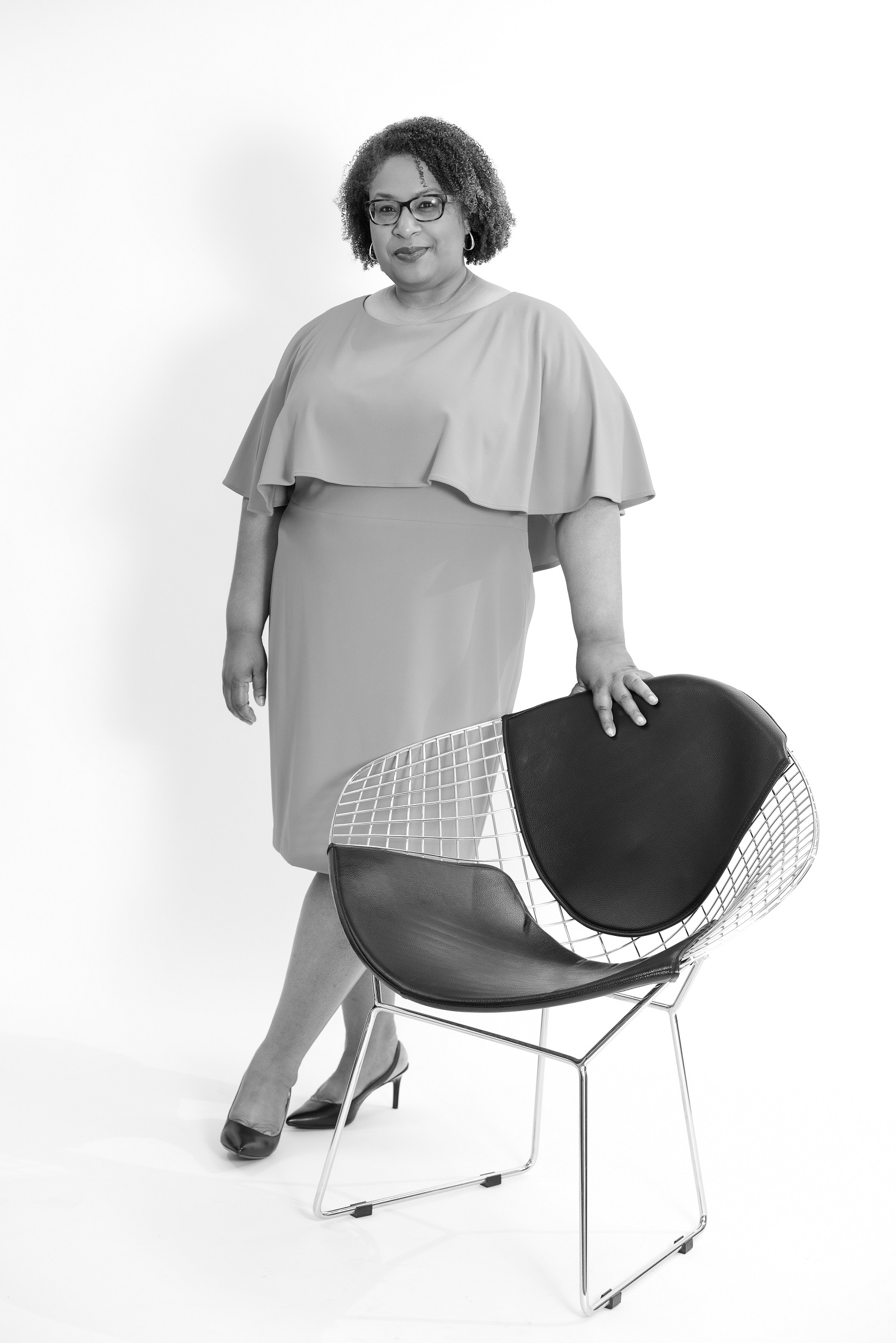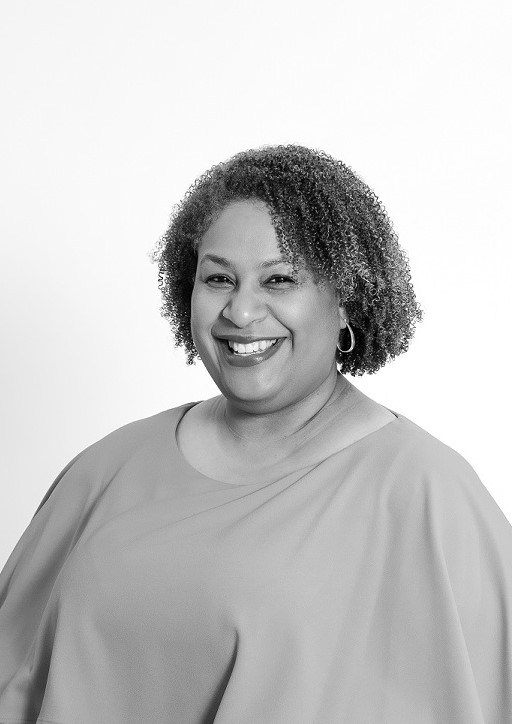Empathic. Radical Truth-Teller. Artistic Director.

Hana Sharif discovered her dramatic roots as a child growing up in Houston, Texas. Her parents laid a full cultural life at her feet to expose their daughter to everything, from the symphony to the theater. This fueled Sharif’s creativity and eventually, her career as a playwright, director and producer. In September, she takes center stage for her first season as the Repertory Theatre St. Louis’ artistic director.
As an African-American woman in the theater world, Sharif has, at times, felt challenged and marginalized, but she hopes her successful journey will help others imagine a path for themselves.
“If every CEO is a man, the first time you see a woman CEO, you recalibrate the possibility of your life,” she explained.
Deeply empathic, Sharif seeks to understand people’s pain and comfort them. This impulse is what roots her in the theater as a way to explore human frailties and triumphs. Her decision to come to The Rep was based on its history of artistic excellence, which she declares, “That’s not changing.”
Sharif earned a B.A. from Spelman College and an M.F.A. from the University of Houston. She’s been honored with a 2009-10 Aetna New Voices Fellowship and the Theatre Communications Group New Generations Fellowship. She and her husband, Marcus, a business consultant and strategist, have an 8-year-old daughter, Zahara.

AS A CHILD, I SAW THE BEAUTY OF PEOPLE ON STAGE.
I was about 5 years old, watching “Porgy and Bess” at the Miller Outdoor Theatre in Houston. It was riveting. There were the most beautiful people on stage and everyone looked like me. I was feeling full, sitting on the edge of my seat. There is life on the stage – a glow and an energy and a passion. The emotionality of that experience never left me.
MY MENTOR, EDWARD ALBEE, WAS RIGOROUS AND RUTHLESS.
When I was a graduate student, I worked for two years with Pulitzer Prize-winner Edward Albee, who was an artist-in-residence. He’d select his students based on the “interesting mistakes” they’d made in their plays. He taught me how to de-construct a play within an inch of its life in order to identify the fractures. The best compliment he gave me? “You are a real playwright.”
THIS BUSINESS IS GUARANTEED TO BREAK YOUR HEART.
Throwing my body on projects that were important wasn’t just for me. Being an African-American woman, I was holding space for other generations that would come after me. The responsibility is greater than one individual. Theatre is a business rooted in patriarchy – and artists walk with great courage to rebuild every time their heart is broken.
PLAYWRIGHTS ARE BORN, NOT MADE.
Playwriting is the most challenging of my careers. It’s the most isolating – an all-consuming and solitary experience. A play comes through your body. The first draft is magical, but then the real work of rewriting takes place. I am passionate about developing playwrights and have commissioned plays that won Pulitzer Prizes and went on to Broadway.
I COME FROM A FAMILY OF RADICAL TRUTH-TELLERS.
Mom was a disciplinarian who taught us how to navigate the world. She did not couch things in milk and cookies. There are five kids in my family, and we were required to have creative, imaginative lives. We explored and played and built tent cities, experiencing the world through storytelling.
MY GRANDFATHER FIXED ME UP WITH MY HUSBAND IN THIRD GRADE.
My grandfather mentored Marcus as part of the “I Have a Dream” program. For years, he told us about each other. But it wasn’t until my grandfather’s funeral that we actually talked – for hours. Then Marcus, a West Point graduate, was deployed to Kuwait and our relationship developed through letters and emails. My grandfather understood something in both of us that took us years to see.
MY MOTHER WORRIED ENOUGH FOR BOTH OF US.
I was fearless, but my mother saw dangers and roadblocks everywhere. Still, she always had my back which gave me security as I built my career. When I had problems, she’d say, “You have a few minutes to weep and then we have to get on with the business of finding a solution.” She gave me a soft place to land and the push to get up.





